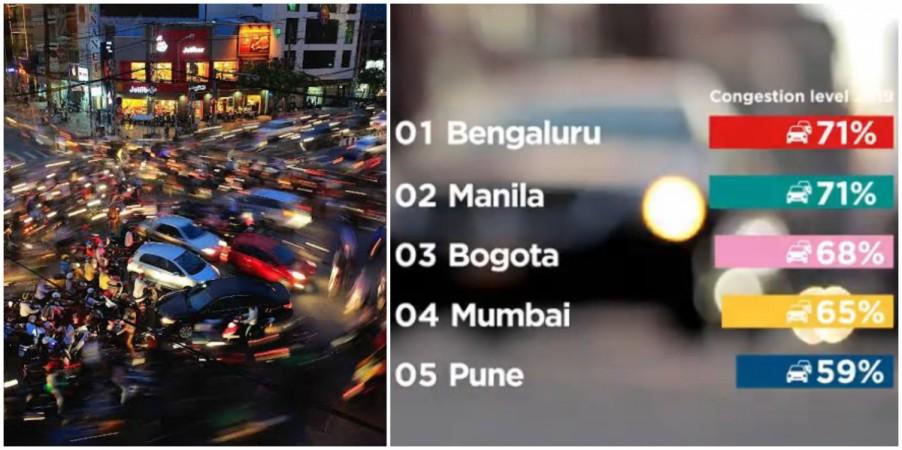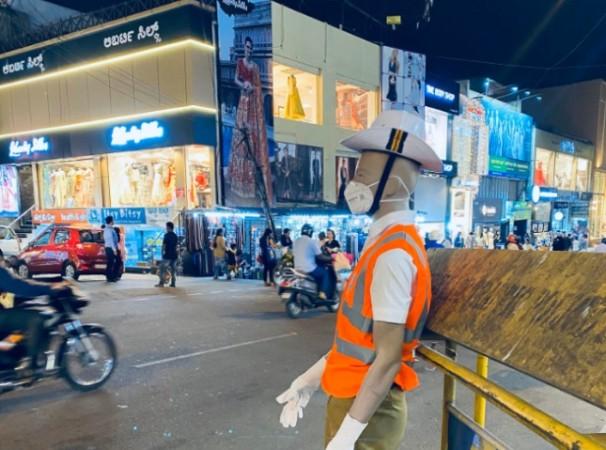Bengaluru is the most traffic-congested city in the world, said a Dutch real-time traffic information and services company.

"Bengaluru takes the top spot this year with drivers in the southern Indian city expecting to spend an average of 71 per cent extra travel time stuck in traffic," said TomTom Traffic Index on Wednesday, January 29.
TomTom traffic index
The newly launched TomTom Traffic Index reveals the top congested cities in the world. See how your city ranks at: https://t.co/acQZdSdnLD #TomTomTrafficIndex #MovingWorld pic.twitter.com/omqbYNwq5N
— TomTom (@TomTom) January 29, 2020
TomTom is a Dutch independent location technology specialist, offering maps and navigation software among others. Headquartered in Amsterdam, TomTom has offices in 30 countries.
Closely following the Indian tech hub in Philippines capital Manila, where people also spend 71 per cent more traffic waiting time, Bogota, 68 per cent, Mumbai, 65 per cent and Pune, 59 per cent, comprising the top five most congested cities in the world.
Of the top five most choked cities in the world, three are from India, Bengaluru, Mumbai and Pune.
In Europe, Moscow is the most traffic-congested city, followed by Istanbul, Kyiv, Bucharest and St. Petersburg.
In the United States, Los Angeles leads traffic congestion, followed by New York, San Francisco, San Jose and Seattle.
"Traffic congestion has increased globally during the last decade, and the 239 cities (57 per cent) TomTom included in the new Traffic Index report had increased congestion levels between 2018 and 2019, with only 63 cities showing measurable decreases," said TomTom in the ninth edition of its annual traffic index.

Traffic congestion a sign of strong economy
Though traffic congestion is a sign of the strong economy, TomTom said the choking actually costs economies billions of dollars, with the global average congestion level at 29 per cent.
"Globally, there's a long road to travel until congestion levels are brought under control. In time, the rise of autonomous vehicles and car-sharing services will help alleviate congestion, but planners and policymakers can't afford to sit and wait," said TomTom's traffic information vice president Ralf-Peter Schafer in a statement.
![[Representational Image] traffic](https://data1.ibtimes.co.in/en/full/683834/traffic.jpg?h=450&l=50&t=40)
As part of its services, the Dutch company analyses real-time incidents and congestion to predict traffic before it occurs, enabling TomTom navigation software to be more relevant with improved route calculations and the better estimated time of arrival.
According to the Dutch company, using its services can help commuters save time, fuel and avoid stress for drivers, fleet and logistics providers and others.
Aiming at the future, TomTom is developing high definition maps for autonomous cars and creating efficient electric vehicle routes where the vehicles can be routed and charged.

















